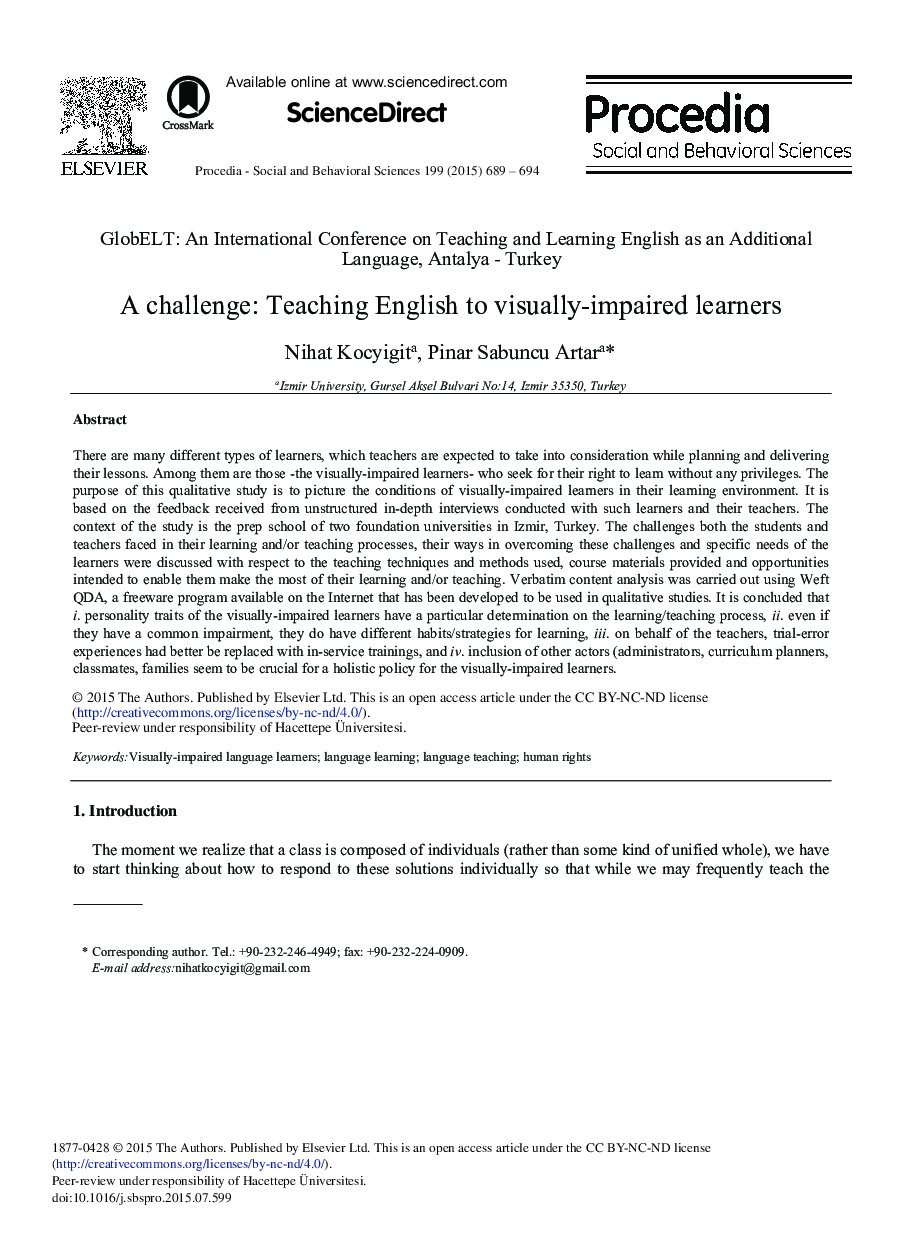| Article ID | Journal | Published Year | Pages | File Type |
|---|---|---|---|---|
| 1109842 | Procedia - Social and Behavioral Sciences | 2015 | 6 Pages |
There are many different types of learners, which teachers are expected to take into consideration while planning and delivering their lessons. Among them are those -the visually-impaired learners- who seek for their right to learn without any privileges. The purpose of this qualitative study is to picture the conditions of visually-impaired learners in their learning environment. It is based on the feedback received from unstructured in-depth interviews conducted with such learners and their teachers. The context of the study is the prep school of two foundation universities in Izmir, Turkey. The challenges both the students and teachers faced in their learning and/or teaching processes, their ways in overcoming these challenges and specific needs of the learners were discussed with respect to the teaching techniques and methods used, course materials provided and opportunities intended to enable them make the most of their learning and/or teaching. Verbatim content analysis was carried out using Weft QDA, a freeware program available on the Internet that has been developed to be used in qualitative studies. It is concluded that i. personality traits of the visually-impaired learners have a particular determination on the learning/teaching process, ii. even if they have a common impairment, they do have different habits/strategies for learning, iii. on behalf of the teachers, trial-error experiences had better be replaced with in-service trainings, and iv. inclusion of other actors (administrators, curriculum planners, classmates, families seem to be crucial for a holistic policy for the visually-impaired learners.
